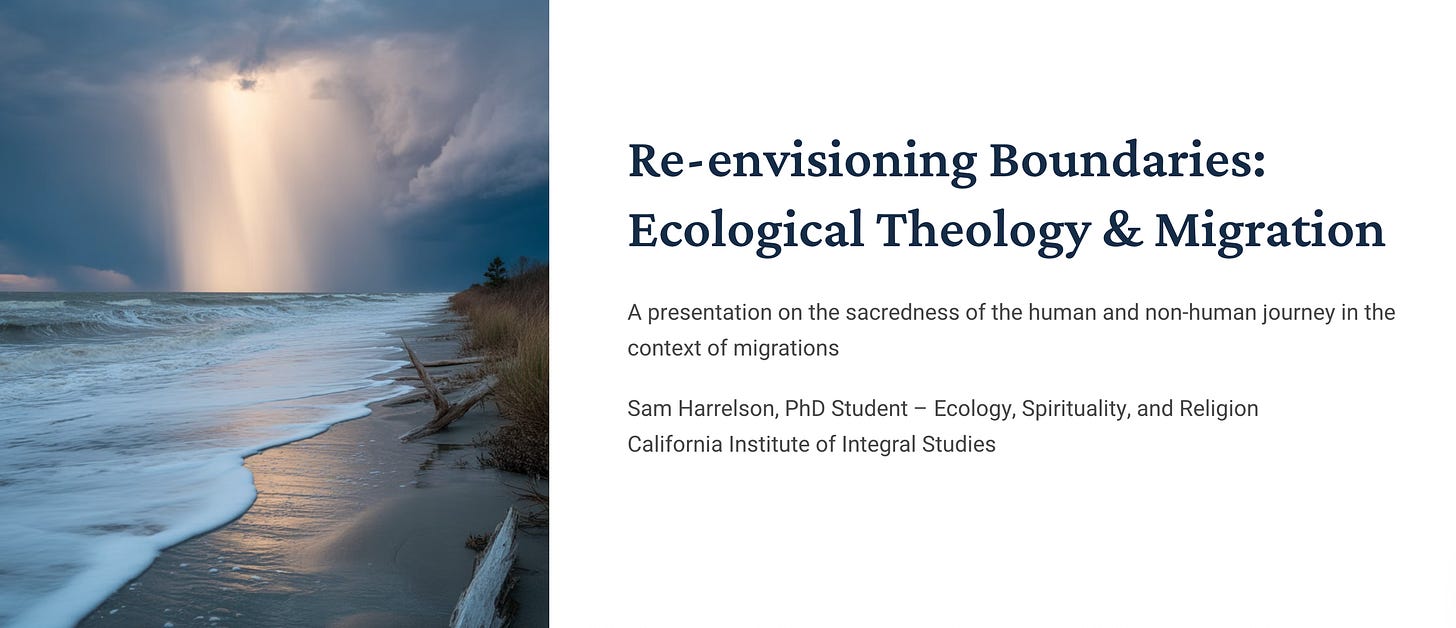Re-envisioning Boundaries: Ecological Theology & Migration in the Carolinas
Helene, Cowbirds, and Sojourners
Today, I presented this paper at the International Society for the Study of Religion, Nature, and Culture’s 2025 conference titled “Crossing Borders, Transgressing Boundaries: Religion, Migration, and Climate Change.”
Here is the abstract of my paper, followed by the full paper below, as well as the slides to help those who enjoy such…
“This paper proposes a fresh theological framework for addressing climate-driven human and non-human migration by re-envisioning ‘boundaries’ as sacred membranes rather than fixed walls. Starting with biblical exile narratives and covenantal land ethics, the study traces a scriptural arc from Edenic displacement to the open-gated New Jerusalem. Drawing on Thomas Aquinas’s Aristotelian metaphysics of diverse participation in divine goodness, it affirms the intrinsic value of every creature and landscape. A phenomenological lens, as seen in Maurice Merleau-Ponty’s ontology of “flesh” and Edith Stein’s embodied empathy, reveals the porous intersubjectivity of humans, animals, and ecosystems, thereby challenging the modern Human/Nature divide.
These theoretical strands converge in an ecological theology of the Carolinas, a region already shaped by Hurricane Helene, accelerating sea-level rise, contested coastal development, and the cancellation of fossil-fuel pipelines. Empirical vignettes highlight climate-induced displacement among coastal residents, migratory wildlife, and monarch butterflies, illustrating how environmental disruptions transgress political and species borders.
The paper advances an “Ecology of the Cross,” grounded in kenosis and Thomas Berry’s vision of a “communion of subjects.” It argues that sacrificial love, wetland restoration, managed retreat, and migration hospitality constitute liturgical acts that honor the sanctity of creation. By consecrating boundaries—softening them where they harden hearts and strengthening them where they protect the vulnerable—faith communities can transform ecological crisis into covenantal renewal.”



